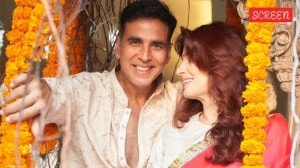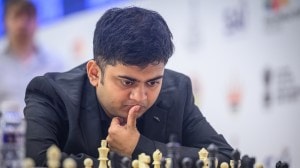RSS at a dead end
Sidney Verba and his associates (1995) have focused on the significant role religion plays in moulding politics and in providing a school ...

Sidney Verba and his associates (1995) have focused on the significant role religion plays in moulding politics and in providing a school for training politicians. This important study raises serious questions about the actual link of religion to a liberal democratic process that theoretically accepts a strict distinction between religion and politics.
Generally, there is an agreement that non-political institutions like the family, educational institutions, institutional affiliation and identification play an important role in shaping political opinion. However, the least emphasised but perhaps the most important is the pivotal role that religion plays in a secular political order.
In their study on the major role religious institutions play in the United States, Verba and his associates point out that religious institutions provide opportunities and the necessary skills for a career in politics. The clergy discusses political issues from the pulpit, provides the necessary institutional infrastructure for political mobilisation and it is well known that the church officials take up positions concerning pu-blic issues.
The church performs a nu-mber of compensatory functions for the less privileged, who without its help would have been left out of the political arena. The high percentage of church attendance has important implications for citizen activity in politics. People attend services and take part in the church’s educational, charitable and social activities. In this close relationship the church leaves an indelible impression on its followers.
The role of the American Southern Black Church on behalf of the Civil Rights Campa-ign is well known. Martin Luther King Jr. himself was a member of the clergy. What is less known but equally significant is the role of the white fundamentalist Protestant Church in propagating conservative issues.
One very important role that the American church plays is the political mobilisation through religious institutions. A significant offshoot of this political involvement, according to Verba, is that it “provide(s) a counter-balance to this cumulative resource process”, namely to offset the advantages that well-off groups with their prestigious educational background, lucrative jobs and organisational affiliation accrue.
This balancing act infuses life into American pluralism by challenging what President Eisenhower called the military-industrial complex. This is an unusual and exceptionally important role that the American participatory system gains out of the church’s mobilisation of the resource-poor but bright Americans to the political process.
This linkage between the religious and the political process in a new modern nation like the US should allow us to understand the role of organisations like the the RSS. This is especially important in a situation where the other channels of political mobilisation like trade unions and the cultural wings of the left parties like the IPTA have ceased to be functional.
The flexibility of Jawaharlal Nehru allowed him to incorporate the traditionalist and socially conservative Hindu leaders, mainly in north India, within his broad framework of a modern secular India with emphasis on science, rationality and progress. In the background of the glory of the Gandhian Congress, the euphoria of a new age led to the very limited success of the Hindu nationalists. It is noteworthy that in the first general election the socialists committed to both nationalism and democracy polled 16 percent of the votes, much more than the nationalist Hindus.
But the post-Nehruvian Congress could not carry on the bright legacy of the pre-independence Gandhian Congress and one of its important components a broad democratic organisation. The Gandhi-Nehru Congress resembled an European Social Democratic Party that gave ample opportunity to talented people at the regional and national level.
However, under Indira Gandhi organisational elections we-re not held for 17 long years. Her dynastic politics failed to attract the talented successor generation. It is this failure that allowed the RSS to fill the vacuum, partially with its organisation and egalitarian ethic to perform in India what the Church plays in the US.
However, its inability to expand and attract a substantial section of the intelligentsia is rooted in its myopic vision of reordering the modern Indian society not with a plank like the equal civil rights that the US Black Southern Church adopted or by a propagation of liberation theology as in case of the radical bishops of Latin America. If the RSS could become the catalytic agent of ensuring civil and political liberties to all irrespective of religion, caste or class, then it would meet with approval from most sections of the Indian society.
Organisationally, the RSS with its emphasis on renunciation and sacrifice of its members, incorporates the sentiments of an influential stream of our nationalist discourse. It also represents modernity of tradition as the old Gurkul system is integrated with the concept of a modern organisation. It follows a decentralised structure, and no leader is projected as indispensable as is the case with most other political and social organisations.
It is the office and not the particular incumbent who is revered, giving it a certain modern sanctity in the Weberian sense. For the young, the emphasis on discipline and physical training assumes the form of a boys’ scout organisation.
It is the larger organisational skill and a feeling of oneness that has enabled the RSS to promote many of its cadres through the BJP to project th-emselves in the political arena. Today it seems to have reached a plateau and, unlike the American church system, has not so far championed important issues facing the nation. It has not transcended its obsolete religious and caste prejudices and has been unable to create an organisation that would be attractive to the bright poor.
Its brand of Hindu nationalism is not only retrograde but also inadequate to win elections. It is a cardinal principle of de-mocracy that extremist forces cannot endure. Once Gramsci, the famous It-alian communist, remarked that if people are to be successfully mobilised then the Roman Catholic Church ou-ght to be the role model.
The RSS urgently needs a Gamscian transformation, if its role is to be as enduring in Indian politics as that of the American Church in American politics. It would have to discard its ethno-religious platform and use its extensive and decentralised organisation to deal with po-verty and champion pluralism and human rights. The RSS’s wider appeal and acceptability would largely depend on its capacity to carry forward its legacy of fighting the Emergency and its subsequent incorporation into the JP movement for a better India not for any particular section but for all.
The writer is a professor of political science at Delhi University



- 01
- 02
- 03
- 04
- 05




























